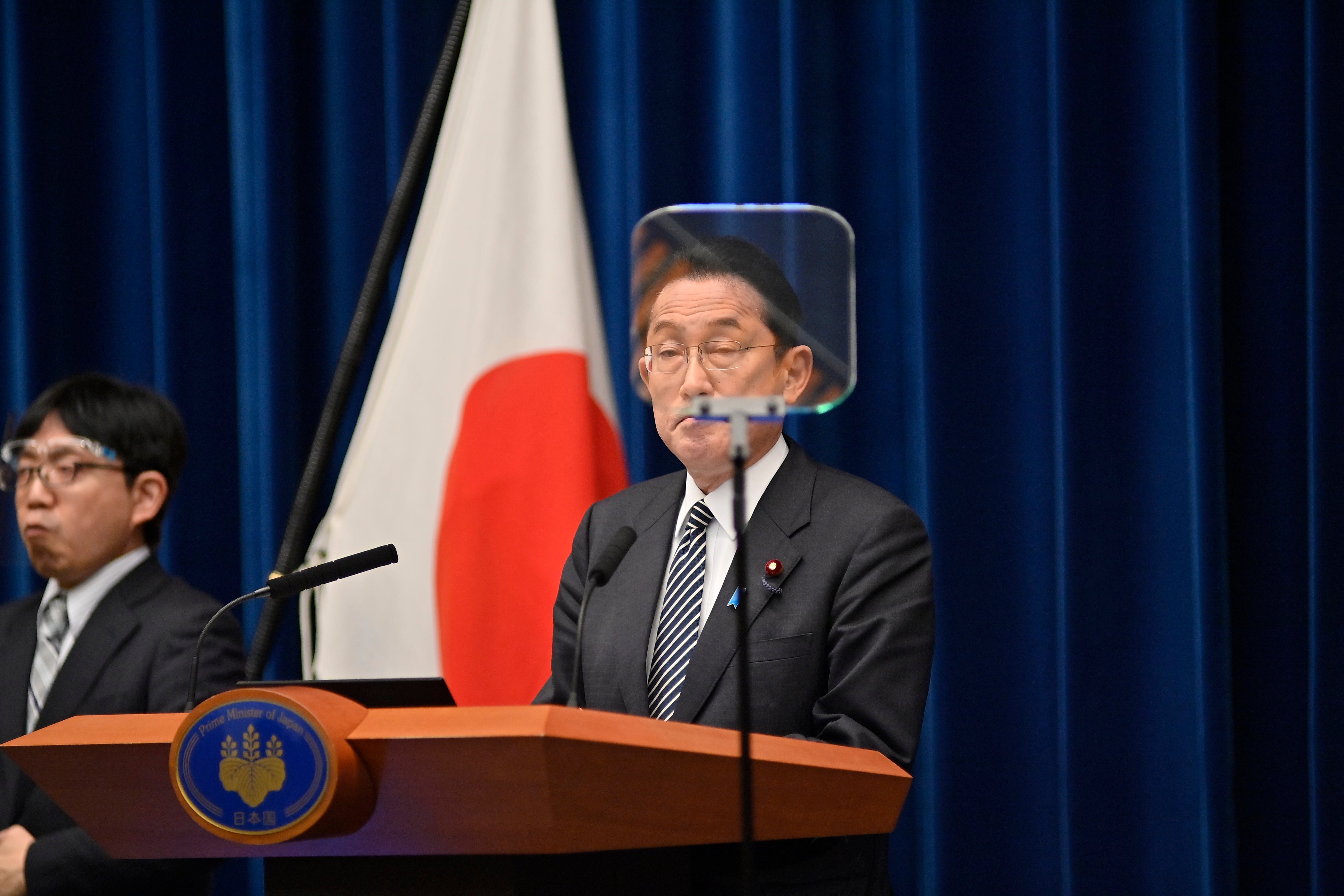Japan eases border controls amid criticism as exclusionist
Japan will ease its tough COVID-19 border controls by increasing the number of people allowed to enter each day and reduce quarantine requirements following criticism that its current policy is unscientific and xenophobic

Your support helps us to tell the story
From reproductive rights to climate change to Big Tech, The Independent is on the ground when the story is developing. Whether it's investigating the financials of Elon Musk's pro-Trump PAC or producing our latest documentary, 'The A Word', which shines a light on the American women fighting for reproductive rights, we know how important it is to parse out the facts from the messaging.
At such a critical moment in US history, we need reporters on the ground. Your donation allows us to keep sending journalists to speak to both sides of the story.
The Independent is trusted by Americans across the entire political spectrum. And unlike many other quality news outlets, we choose not to lock Americans out of our reporting and analysis with paywalls. We believe quality journalism should be available to everyone, paid for by those who can afford it.
Your support makes all the difference.Japan will ease its tough COVID-19 border controls by increasing the number of people allowed to enter each day and reduce quarantine requirements following criticism that its current policy is unscientific and xenophobic.
Prime Minister Fumio Kishida said Thursday the daily entry cap will be raised to 5,000, including Japanese citizens, from the current 3,500 beginning March 1. The decision is good news for foreign scholars, exchange students and business travelers who have been unable to enter, but does not cover tourists.
He says quarantine requirements for entrants will be shortened to three days from the current seven, and those with proof of a negative COVID-19 test and a booster shot can skip self-isolation.
Japan has banned nearly all non-resident foreign entrants since early in the pandemic. The country, which saw a significant decrease in infections in the fall, briefly announced an easing in November but quickly reversed the decision after the omicron variant emerged in other countries.
THIS IS A BREAKING NEWS UPDATE. AP’s earlier story follows below.
TOKYO (AP) — Japan is set to announce easing of its strict border controls by increasing the daily quota for foreign arrivals and shortening the quarantine requirement beginning in March, following criticisms that the country’s policy is unscientific and xenophobic.
Senior officials of Prime Minister Fumio Kishida’s governing party recently said they are considering raising the daily entry cap to 5,000 from the current 3,500 beginning March 1 as one way of relaxing the border measures for foreign scholars, students and business people. The measure will not include tourists for now.
Shortening the self-isolation period after entry to three days from the currently required seven is being considered, Japanese media reported. Officials are also considering eliminating the self-isolation requirement for non-resident foreigners carrying proof of negative COVID-19 test results and booster shot.
Kishida is expected to announce a plan and explain details at a news conference later Thursday.
Kishida on Saturday said he was considering easing border measures based on a scientific assessment of the omicron variant, infection levels in and outside Japan and quarantine measures taken by other countries.
Most of Japan is currently under virus-related restrictions. Infections only recently started to show signs of slowing, likely because of delayed booster shots.
Nationwide, Japan reported 91,006 new cases on Wednesday, down slightly from a week earlier, after the caseloads exceeded 100,000 on Feb. 5.
But experts say the infections are continuing to burden Japan's medical systems that tend to be overwhelmed easily because COVID-19 treatment is limited to public or major hospitals.
Japan has become one of the world’s most difficult countries to enter and critics compare it to the “sakoku” locked country policy of xenophobic warlords who ruled Japan in the 17th to 19th centuries.
The current border rules — scheduled to remain in place until the end of February — allow in only Japanese nationals and permanent foreign residents. The policy has raised protests from foreign students and scholars, about 150,000 of whom have been affected.
Japanese and foreign business groups have also protested the government, saying the prolonged border closure has affected investment, business deals, product development and deliveries.
Experts say the rules are hurting Japan’s national interest and further delaying recovery in Japan’s pandemic-hit economy.
Many of the Japanese public have been supportive of the tight border controls as they think troubles such as the pandemic come from outside their island nation. Kishida’s stringent border controls are widely seen as politically motivated to gain public support for his governing party in the upcoming July parliamentary elections.
Kishida’s government, however, faces public criticisms over slow booster vaccine distribution due to a delayed decision to cut intervals between the first two shots and a third to six months from an initially planned eight.
Kishida has set a target to give 1 million doses a day by the end of February.
Only about 12% of Japan’s population have received their third jabs. Experts say the low vaccination rate contributes to a growing number of serious cases and deaths among elderly patients.
While fast-spreading omicron variant is less likely to cause serious cases among younger people, it is increasingly causing serious illness and death among the elderly by deteriorating their underlying illnesses, starting to overwhelm many hospitals.
Kishida is expected to announce other virus measures Thursday, including subsidies to hospitals that accept elderly patients and increased allowances for nursing homes treating their residents instead of sending them to hospitals.